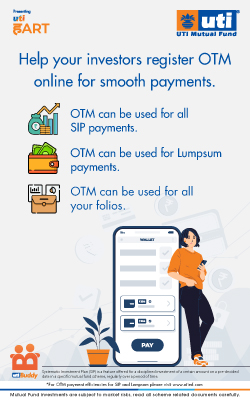To ensure success with businessmen, learn to identify and deal with their unique set of concerns, says Nisreen Mamaji.
 Dealing with business owners is a challenge because very often they believe that they can earn higher returns by investing in their own businesses rather than in a mutual fund. In my experience, the best way to approach them is by addressing their key concerns:
Dealing with business owners is a challenge because very often they believe that they can earn higher returns by investing in their own businesses rather than in a mutual fund. In my experience, the best way to approach them is by addressing their key concerns:
Education Planning:
Many business owners aspire to send their children for a graduate or under-graduate education abroad. The colleges they aim for, roughly cost $30,000 to $40,000 annually. Since funding such expenses for 4 to 6 years would create a burden on the business, they are very open to starting education plans for their children often at a young age of 7-10.
Diversification:
IFAs must educate business owners of the risk of being dependent solely on their businesses and the need to diversify. Do ensure that if sector-based or thematic funds are recommended, they do not follow the same business cycle as the client’s business. A large cap or mid-cap diversified fund should be a part of the recommended allocation.
Key person Insurance:
This is a term-insurance policy where the sum assured is linked to the profitability of the company rather than the key person’s own income. The premium is paid by the company. This is tax efficient as the entire premium is treated as business expense. In case the key person dies, the benefit is paid to the company. Unlike individual insurance policies, the money received after the death in a key person insurance is taxed as income. Key person insurance is important, particularly for family businesses that are highly dependent on a few individuals. It helps ensure that the business can absorb the financial strain of an early death and maintain continuity.
Disability Insurance; Medical Cover and Critical Illness Cover:
Physical disabilities can prove to be disruptive for the business and hence, the need to have disability insurance:
- Disability Insurance: The policy compensates individual against death, loss of limbs, loss of eyesight, permanent total disablement, permanent partial disablement and temporary total disablement, solely and directly resulting from accidental injuries.
- Medical Cover: The policy will cover in-patient hospitalization; certain day care procedures and pre &post hospitalization expenses.
- Critical Illness cover: The policy usually covers nine critical illnesses wherein, the insurance is paid on diagnosis and bills are not needed as proof of treatment. Of course if the insured dies due to the critical illness after a specified period, then he would receive the death benefit only and not the critical illness cover.
The best method to reach out to business owners is to get a reference from their friends or clients. Alternatively if you are in a social gathering which is being attended by business owners, do not hesitate to take an appointment.
Once you have scheduled a meeting with the prospect, do try to involve his/her accountant or finance-in-charge. Of course this is an ideal situation, failing which,a separate meeting with the latter, could be set up. This should be followed up with emails and presentation of a plan giving expected yields and maturity values thereof. Lastly, completion of documents should be done in one meeting only, since it may be difficult to manage more face-to-face interactions with business owners.
The views expressed in this article are solely of the author and do not necessarily reflect the views of Cafemutual.




